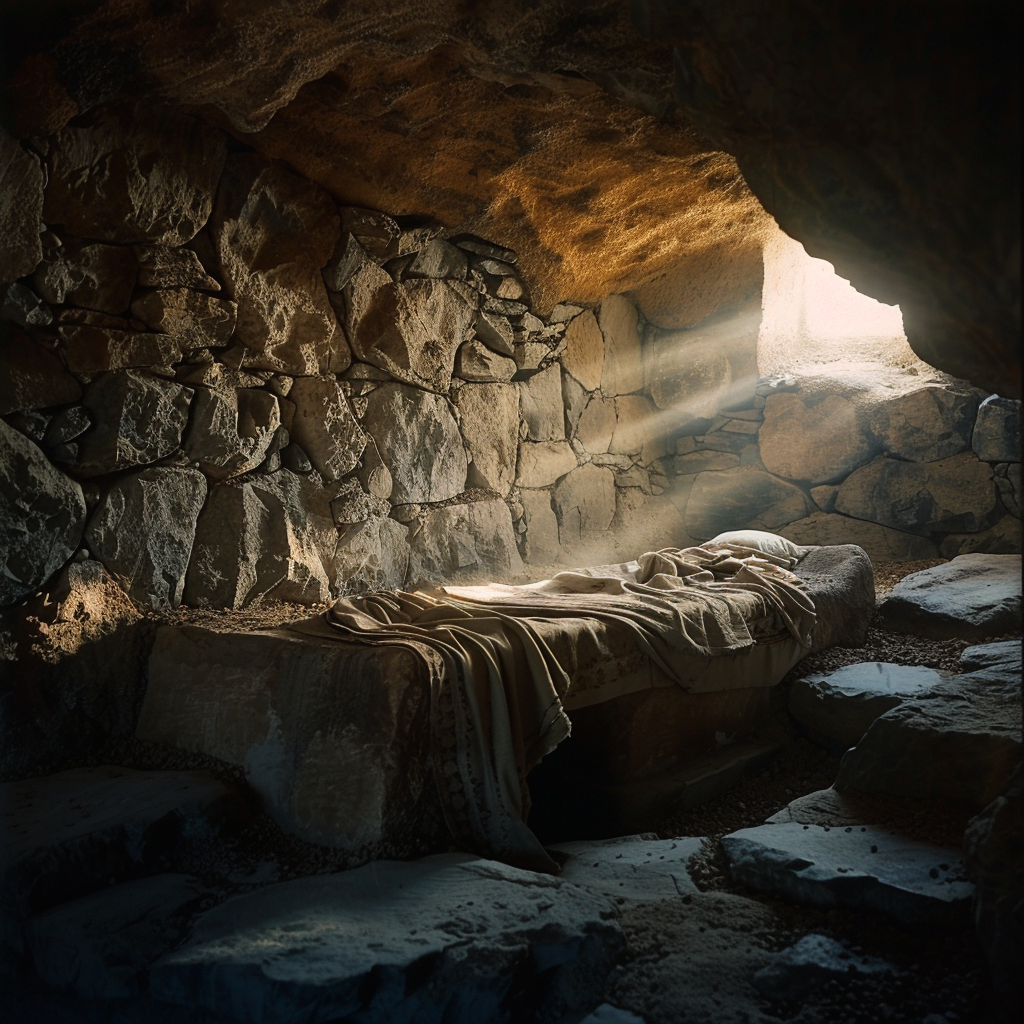Get in touch
555-555-5555
mymail@mailservice.com
2 Kings 24 - 25
Chapter 24:
Judah is Taken into Captivity
During the eleven-year reign of Jehoiakim, a second son of Josiah, the king of Babylon invaded the land of Judah. Jehoiakim became a vassal (puppet) of Nebuchadnezzar, the king of Neo-Babylonian Empire (modern day Iraq). After three years of being controlled by Nebuchadnezzar, Jehoiakim decided to rebel (2 Kings 24:1).
The Prophet Habakkuk wondered why God wasn’t acting to punish Judah sooner. God told him that he had a plan to use Babylon to be his instrument to punish Judah.
2 Kings 24:2, “The Lord sent Babylonian, Aramean, Moabite and Ammonite raiders against him. He sent them to destroy Judah, in accordance with the word of the Lord the proclaimed by his servants the prophets.”
Why did this happen? Verse 3, “because of the sins of Manasseh and all he had done, including the shedding of innocent blood.” What were these sins? Chapter 21 lists some of them: He “did evil in the eyes of the Lord”, he rebuilt the high places, erected altars to Baal, made an Asherah pole, bowed down to all the starry hosts and worshipped them, he sacrificed his own son in the fire, practiced sorcery and divination, and consulted mediums and spirits. He placed an Asherah pole in the temple. He led his people astray so that they did more evil than the nations the Lord had destroyed before the Israelites.”
Then King Jehoiakim died (verse 6). His death brought little sorrow to the people of Judah. He was a proud, cruel, oppressive leader whose body was thrown on the garbage dump outside Jerusalem (Jer. 22:18-19; 36:30). Meanwhile, the Babylonians subdued the King of Egypt (verse 7) and Jehoiakim was succeeded by Jehoiachin (verse 8). Jehoiachin’s reign didn’t last very long (three months), barely enough time to get unpacked in the palace. And yes, like his predecessor, “he did evil in the eyes of the Lord” (verse 9).
Verse 10, “At that time the officers of Nebuchadnezzar king of Babylon advanced on Jerusalem.” This was in 597 B.C. The king was taken captive to Babylon (verse 12), along with about 10,000 others, perhaps including Daniel and his friends (verse 14). Only the poorest people of the land were left. Nebuchadnezzar also took all the valuables he could find in the temple, and palace. He also took into captivity many prisoners of war (POW’s) (verse 16).
Nebuchadnezzar placed Jehoiachin’s uncle on the throne of Judah and changed his name to Zedekiah
(verse 17).
Chapter 25:
The Fall of Jerusalem
Now Zedekiah rebelled against the king of Babylon. 2 Chron. 36:12 tells us that, “He did evil in the eyes of the Lord his God and did not humble himself before Jeremiah the prophet, who spoke the word of the Lord. He also rebelled against King Nebuchadnezzar, who had made him take an oath in God’s name.”
Verse 1, “Nebuchadnezzar king of Babylon marched against Jerusalem with his whole army” The city was kept under siege for over a year. Verse 4, “Then the city wall was broken through and the whole army fled at night.”
Jeremiah predicted this siege in Jer. 38:2, “Whoever stays in this city will die by the sword, famine or plague, but whoever goes over to the Babylonians will live.” Jeremiah knew what was going to happen, it was part of God’s plan. He told the Jews to submit to the invaders and for that he was considered to be a traitor to his people.
Zedekiah and his entourage were captured on the plains of Jericho (verse 6). His sons were executed in front of him, then he himself was blinded, shackled, and taken off to Babylon (verse 7).
Ezekiah predicted Zedekiah’s blindness, exile and death, (Ezek. 12:13), “I will bring him to Babylonia, the land of the Chaldeans, but he will not see it, and there he will die.”
Nebuchadnezzar then set fire to the temple, palace and all the houses of Jerusalem (verse 9). They took the valuables from the temple, including the bronze pillars, the movable stands and the bronze sea, all the pots, shovels, etc. (verses 13-17). Anything of value was taken.
The destruction of God’s temple was unthinkable, but 1 Kings 9:7 tells us that God’s presence would be in the temple unless there was disobedience, and idol worship. We see the presence of God departing the temple in Ezek. 10: 4, “Then the glory of the Lord rose from above the cherubim and moved to the threshold of the temple.” Verse 18, “Then the glory of the Lord departed from over the threshold of the temple.” Without the presence of God, the temple became just another building which would be destroyed by the Babylonians.
1 Kings 25:18-21 lists the many officials who were also taken into captivity. Verse 21, “So Judah went into captivity, away from her land.” Many of these POW’s were executed (verse 21).
God warned them of the possibility of being driven out of the land. Deut. 28:26, “The Lord will drive you and the king you set over you to a nation unknown to you or your fathers. Verse 47, “Because you did not serve the Lord your God joyfully and gladly in the time of prosperity, therefore in hunger and thirst, in nakedness and dire poverty, you will serve the enemies the Lord sends against you.”
Verse 22, Nebuchadnezzar appointed Gedaliah to govern over those who remained in Judah. The events of his reign as governor (not king), are described in detail in Jer. 40:7-41. It included setting up a new capital in Mizpah.
Gedaliah advised his people, verse 24, “Do not be afraid of the Babylonian officials. Settle down in the land and serve the king of Babylon, and it will go well with you.” Jeremiah gave the same advice in Jer. 27:17, “serve the king of Babylon and you will live.”
Well, not everyone was happy with Gedaliah’s advice. Verse 25, “Ishmael . . . came with ten men and assassinated Gedaliah. At this (verse 26) all the people from the least to the greatest, together with the army officers, fled to Egypt for fear of the Babylonians.” Who did they take with them? A protesting Jeremiah, who died in Egypt. Tradition has it that Jeremiah died by stoning, stoned by his fellow Judeans.
2 Kings 25:27 tells us that in the thirty-seventh year of the exile of Jehoiachin, king of Judah, was released from prison and was given a “seat of honor” at the king’s table. This appears to have been a part of a general amnesty given to former enemies.
Not everyone was sad about the fall of Jerusalem. The Edomites were a part of the attack and rejoiced at the opportunity to enrich themselves (Ps. 137:7). The prophet Obadiah announced God’s judgement on them for their hostility towards their brother nation (they were descendants of Esau, the brother of Jacob (Israel).
Among those taken into captivity was a priest by the name of Ezekiel. In his early writings he condemned the sins of the people of Jerusalem but also gave them a message of hope that one day they will be cleansed of their sins and will worship God in spirit and in truth.
Daniel outlived the Babylonian empire and was still alive in the third year of the Persian king Cyrus (Dan. 10:1). He lived to see the first Jews return to Jerusalem to rebuild the nation (2 Chron. 36:22-23).
There are stories of celebrities who rose from poverty to great wealth only to lose it all and return to poverty. Even more sad is when a people are chosen for great blessing, acquire it, only to lose it all. After centuries, God’s chosen people were back in Babylon where it all began with Abraham given an unconditional promise of land, descendants and “blessings” others were back in Egypt where they once had been liberated from slavery. This must be one of the saddest rags to riches, back to rags story in history.
Recent Articles

29 Mar, 2024
Purim is a Jewish celebration, more like the Fourth of July or Mother’s Day, than a religious holiday like Passover. Purin is usually observed in February or March of each year. The word Purim means, “lots” as in a lottery, which was the means that the villainous Haman, an Amalekite, used to set the date for the massacre of Jews in Persia (previously Babylon). These events in the Book of Esther take place between chapters six and seven of the Book of Ezra. The setting is Persia, seventy years after they were taken into captivity by the Babylonians. Israel spent 70 years in captivity in Babylon, which was later taken over by the Persians in 539 B.C. Just a year later, the Persian King Cyrus decreed throughout his empire that any captive Jews in Babylonia who desired could return to Jerusalem to rebuild the temple. Cyrus even allowed the vessels of gold and silver stolen by Nebuchadnezzar’s troops to be returned. As we will read in Isaiah 48 , they all should have left, but some stayed behind. Let’s look at the cast of characters in this drama. The villain in the story was Haman, an Amalekite. The Amalekites were descendants of Esau, Jacob’s brother. You might recall that these siblings had a long-standing conflict that revolved around the birthright. Esau, the firstborn, sold his birthright to his brother Jacob. The hostility that Jacob and Esau had for one another carried on through the generations like a bad gene. Esau had a grandson named Amalek, from which we get the name Amalekites. These cousins of the Israelites attacked them whenever they had the chance. When the Jews were led out of Egypt by Moses, the Amalekites attacked them in Rephidim, in the Sinai Desert. This unprovoked attack led God to promise to blot out the memory of Amalek from under heaven (Ex. 17:8-14) . Forty years later, in his last major speech to his people, Moses reminded the Jews of the command to go after Amalek (Deut. 25:17-19) . Saul, the first King of Israel, was commanded to wipe out the Amalekites (I Sam. 15:2-3) . But Saul disobeyed and spared the life of King Agag (I Sam 15:9) . This led to the premature end of the reign of Saul (I Sam. 15:23) . Saul, realizing his mistake, subsequently did kill Agag, but one of his sons survived. So not only was he disobedient, but he was also incompetent. Some 500 years later, one of his descendants was Haman. Others in the cast of characters included the royal couple, King Xerxes (some think it was King Ahasuerus or perhaps both names refer to the same person), and Queen Vashti. Then there was Esther, the Jewish maiden, and her uncle Mordecai. And so, with the setting in place, the cast of characters on stage, let the drama that led to Purim begin.
Share this:
Share
Tweet
Share
Mail
Start Here...
Why Study the Bible?
Don’t many consider the Bible to be just a book of myths? Why do we read the Bible rather than the sacred literature of other religions?
How do we know that it is from God? How do we know that what we have today is an accurate translation from the original? Is the Bible complete or have there been some books that have been lost?
We should be able to answer these questions, and there are answers! So start here!
Answers to Common Bible Questions

17 Dec, 2021
Lent is a six week period of spiritual devotion starting on Ash Wednesday and ending at Easter. Those who observe Lent usually give up something for Lent. Some might give up coffee, or soda pop, or alcohol, or chocolate. May I suggest that you give up something that will really impress God and make this season of Lent one of the most memorable and meaningful seasons of your life? May I suggest that if you are giving up something, why not give up some of the acts of our sinful nature mentioned in Gal. 5:19? Why don’t we give up lying about others? Do you think you can give up the hate you feel towards others? How about envy, can we work on putting envy aside this year? How about giving up on the naïve idea that all pastors are mature Christian leaders whose word should always be accepted, rather than wolfs in sheep’s clothing (Matt 7:15). How about giving up the idea that everyone in church is a real Christian (Matt 7:21-23). How about giving up your desire to seek revenge on those who have hurt you (Matt 18:21-22)? If you are insecure and feel threatened when you see the success of others in ministry, how about giving up efforts to hinder others who have been called to minister (Rom 12:4-8)? Of course it is easier to give up something like chocolate, etc. and make yourself feel like you are doing something that is pleasing to God. If you are not willing to give up unchristian behavior, might I suggest something that will really please God this Lent? Give up all evidence of your profession of Christian faith, such as books, pictures and jewelry. Don’t talk about God, Jesus or the Church. I think God would appreciate it if you would stop giving HIM a bad name by the way you live. Let’s give up what hinders our witness and become a better ambassador for Christ (2 Cor 5:20) this Lenten season.

17 Dec, 2021
In Matthew 2:1-2 is says that the magi saw "His star in the east." What was this star that guided these men to Jesus? Some have suggested that it could have been a comet, an asteroid, or perhaps a meteor or an especially bright star. The problem with these suggestions is that these physical things either quickly move across the sky and then disappear or are too far away to provide directions with any precision. It would be hard to get directions from such objects. The "star" had to move constantly or intermittently at the same pace as the magi. Then it says that it hovered over the house where Mary and Joseph had moved to with Jesus. It hardly sounds like a comet or meteor or a star as we know them. Can you think of another time that people in the Bible were guided by some form of light? How about the time when Moses was leading the Israelites out of Egypt? He didn't have a global positioning system with him. He did have a pillar of fire that led him at night (Ex 13:21-22). We see this light in Solomon's Temple (2 Chron 7:1-3) and when the Jews were about to go into Babylonian captivity, we see it leaving the Temple (Ezek 9-11). In the New Testament we see it at the birth of Jesus (Luke 2:9) at His transfiguration (Matt 17:5) and His ascension (Acts 1:9). What exactly was this guiding light? The word "star" can also be translated as "radiance." It appears that it was this "radiance" that guided Moses and the magi. The Jews call this the "Shekinah", a physical manifestation of the glory of God in the form of a supernatural radiance. This, I believe, is what the Star of Bethlehem was.

17 Dec, 2021
Imagine that you are the pastor of a church. A young married couple is having some difficulties in their relationship and they seek counsel from you. On Monday the wife comes in to give her assessment of their marriage. What do you think she will say? She might say that she is a hardworking, caring and supportive wife and that it is her husband who is the neglectful, insensitive brute and the source of all problems in the marriage. You feel so sorry for this wife and when you see her husband in the hallway, you think to yourself, "What a jerk." On Friday the husband comes in and gives his assessment of the marriage. He tells you that he is hard working and very generous and that she is the major problem in the relationship. As the pastor, you are wondering if they both are talking about the same marriage. Each person tells you what makes them look best and their spouse the worst. Where is the truth? The truth is probably somewhere in between Proverbs 18:17 says, "The first to present his case seems right, til another comes forward and questions him." There are conflicts in all relationships, between spouses, parents and children, employees and employers. When you hear one side of a story, don’t assume that what you hear is the complete truth. And don’t pass on to someone else what you have heard. Probably, at least some of what you heard is untrue to gain your support in a conflict.
Questions?
Send us your questions or comments. We respond to every message.
About us
Encouraging Everyone to Study the Word of God and do the Work of God.
Useful Links
Contact info
Join our family
Contact Us
Thank you for contacting us.
We will get back to you as soon as possible
We will get back to you as soon as possible
Oops, there was an error sending your message.
Please try again later
Please try again later
The Berean Bible Ministry
This web site is dedicated to the study of the Bible, with no advertising and no popups. It is supported by our Bible study group.




